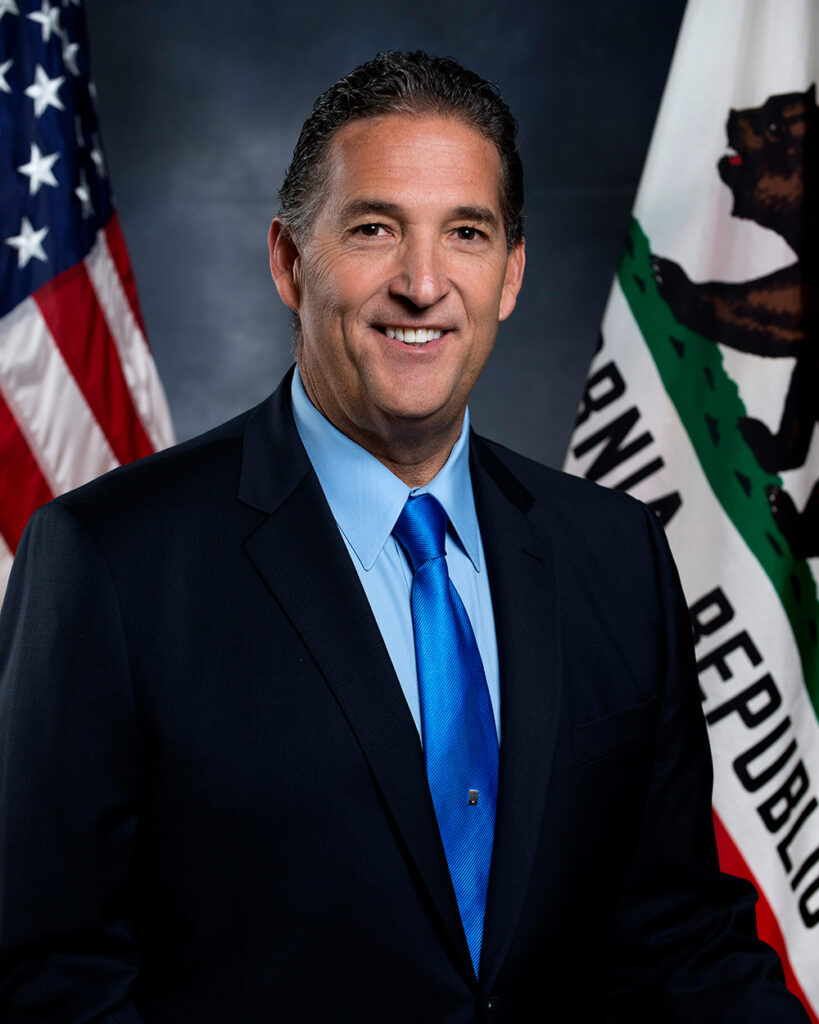(Editor’s Note: Some of the questions and answers have been paraphrased for clarity and brevity.)
Where were you raised and tell us a little bit about your early life experiences?
I grew up in Concord, Calif., but in the middle of high school, my father, who worked for PG&E, was transferred to Fresno. I graduated from Clovis High School in 1977. I was an athlete in high school but was hurt playing football and didn’t continue on past high school. After I graduated from high school, I went through a carpenter apprenticeship program and became a carpenter and then eventually a general contractor in 1989. I worked as a general contractor in the Bay Area, headquartered in Oakley, until 2012 when I was elected to the State Assembly.
I know it was a family tragedy that led you into the political arena. Please explain the path you took to the State Assembly?
My daughter was killed in a traffic accident. In fact, when we got to the hospital, they told us both our daughters were dead. (That did not prove accurate as his daughter Lindsay was in critical condition but ultimately survived.) After getting Lindsay through rehabilitation, it became my quest to fix the road that killed my daughter. (Research showed that this road to Lake Tahoe was a particularly dangerous stretch with numerous fatalities.) I was successful in getting that corridor improved, which led me to other public service positions, including terms on Oakley’s Planning Commission, the Oakley City Council and I served as mayor of Oakley. We were able to secure a lot of funding for road improvements in our area. When this position opened up, I decided to run for the office and try to expand what I was doing to a wider area.
Was transportation the signature issue on which you ran?
Transportation and agriculture. I have a lot of ag business and rural areas in my district and those things are important to me. Of course, in Brentwood we have sweet corn and now there are a lot of grapes in the Oakley area. Transportation is also very important. Improving our system is something I want to continue to pursue. As a contractor for 23 years, I am a project guy. I love working with the civil engineers and others in the industry to identify and solve problems. I am the chair of the Assembly Transportation Committee for this reason. We didn’t get the boost we wanted in the current budget, but we are hoping to get a funding bill in the Special Session that is running concurrently with the current session. In the state of California, we have a deferred maintenance issue when it comes to our roads and bridges. We have 50,000 lane miles that we are responsible for and 13,000 bridges. Many of these were built 60 years ago. If we don’t start a maintenance program soon, we are going to have a big problem on our hands.
We have about an $80 billion problem. Right now we are working on an $8 billion plan to get this moving.
Is there opposition to the idea or is it more a matter of arguing priorities?
I don’t think that transportation should be a partisan issue. Everyone drives and everyone needs the infrastructure to be fixed. We have a user pay system that relies largely on the gas tax, which hasn’t been raise since 1993 or ’94. In fact, we are operating on less real funds (for highway maintenance) than we had when the gas tax was conceived in 1923. I understand there is a philosophy out there that we can’t have any new taxes and we must survive on what we already have. But that’s not possible. There is no such things as a “freeway.” Opponents say we have the highest gas tax in the nation, but we also have the most infrastructure.
We’ve just had a reduction in the excise tax which is going to cost us $1 billion. We have to be able to keep up. The freight dynamic is an important one. Agriculture greatly relies on the highways to move its products. We have to have good roads so trucks can make their turns and the mountain of goods we have can move into commerce.
In other articles, you’ve been described as a moderate. What is your political philosophy?
I take a common sense approach. I signed the front end of a paycheck for 23 years. I was a contractor and now I believe I have a contract with the people. Every time I sign on to a bill, that contract with the people matters. I want clean air and a good environment, but there has to be a balance. I believe when we need a regulation we need to work with industry and ask them to tell us how we can accomplish what we need to get done.
How important is agriculture to the state?
It is absolutely important. Agriculture is made up of family businesses that are very important to our economy. I know water is a big issue and I want to help agriculture. I hope the industry understands it has a direct line to me. I am absolutely concerned about agriculture and its issues and I want to be a problem solver.
What are your views on the various water issues facing agriculture including the Delta plans?
I am absolutely against the twin tunnels. I have made it very clear, that with regard to the Water Bond, the largest proportion of those funds have to go to storage. We have a real cycle of drought in the state and we have to provide more storage. We have more houses and more people and more demand. The infrastructure has to keep up with it.


